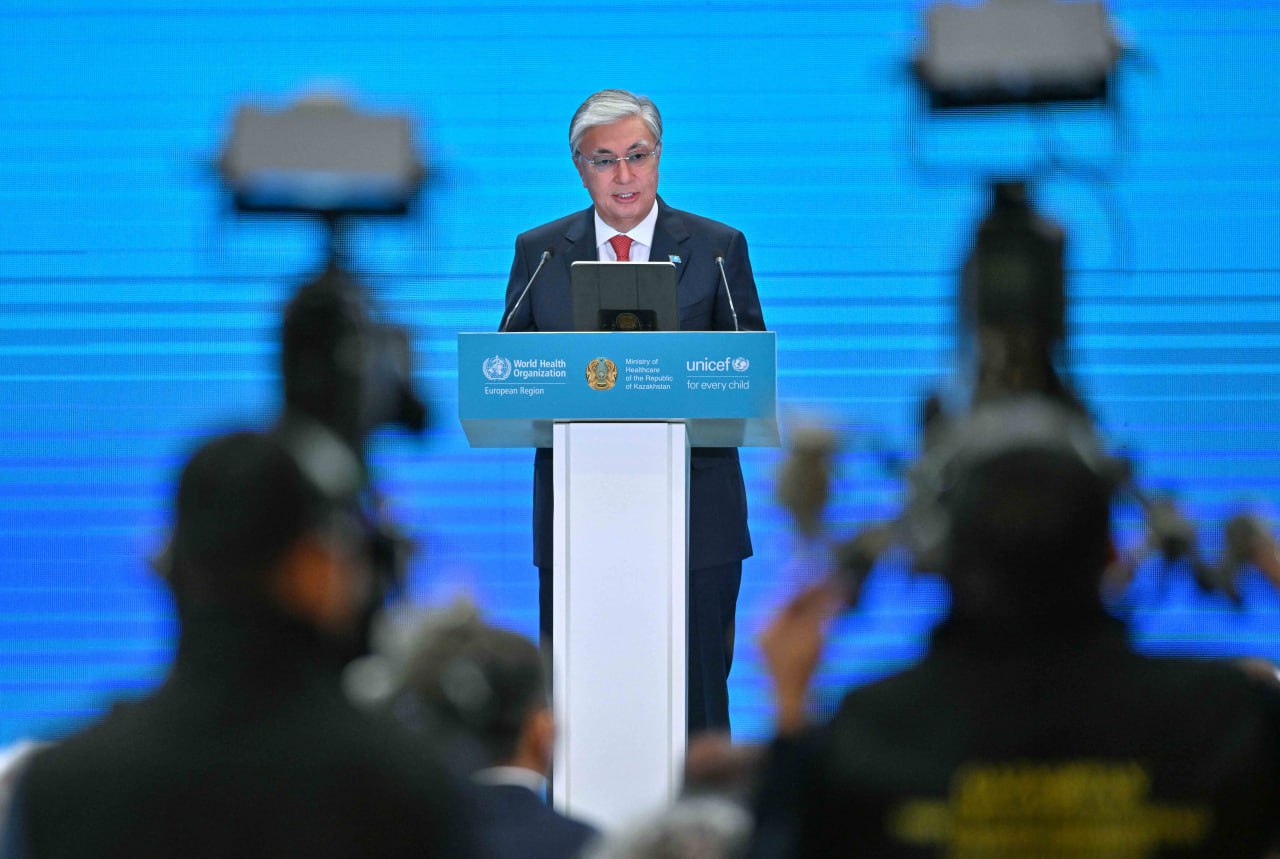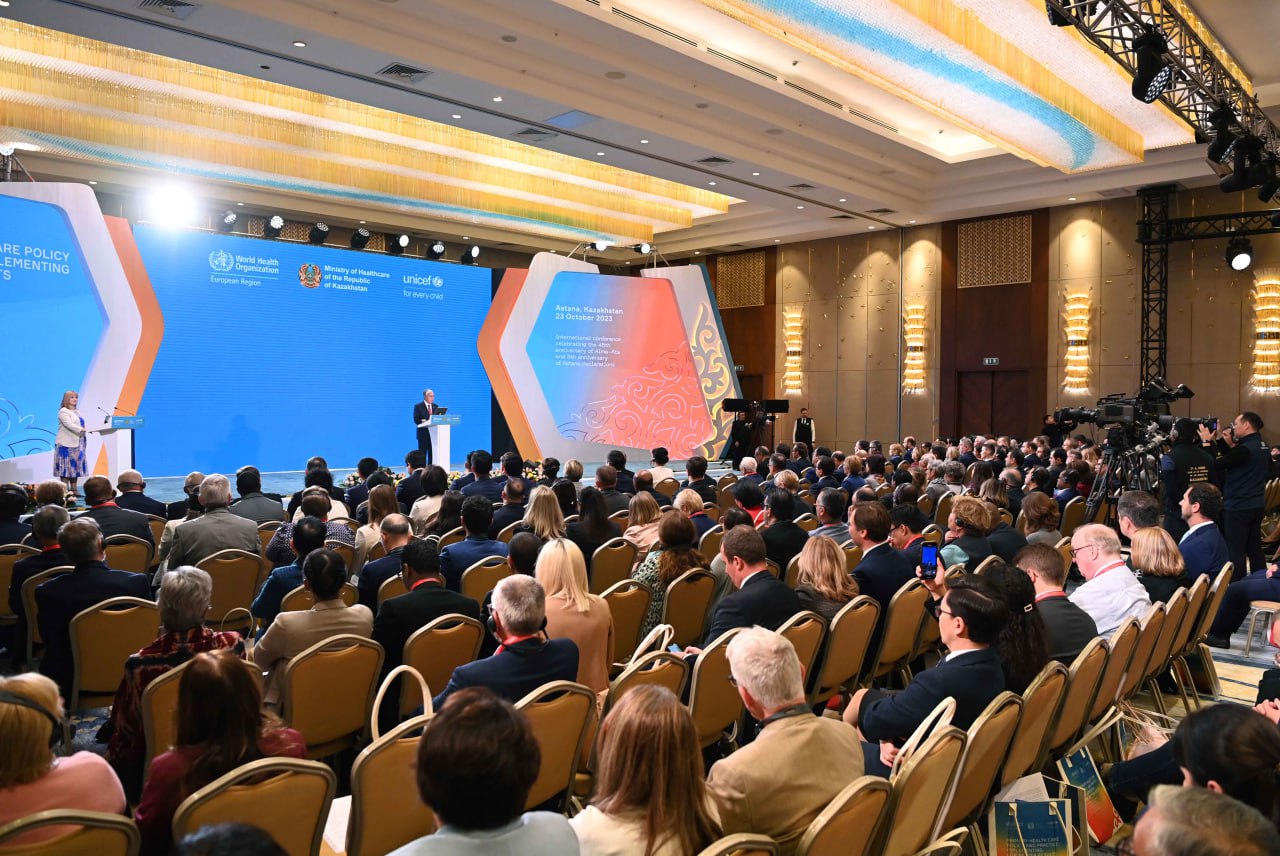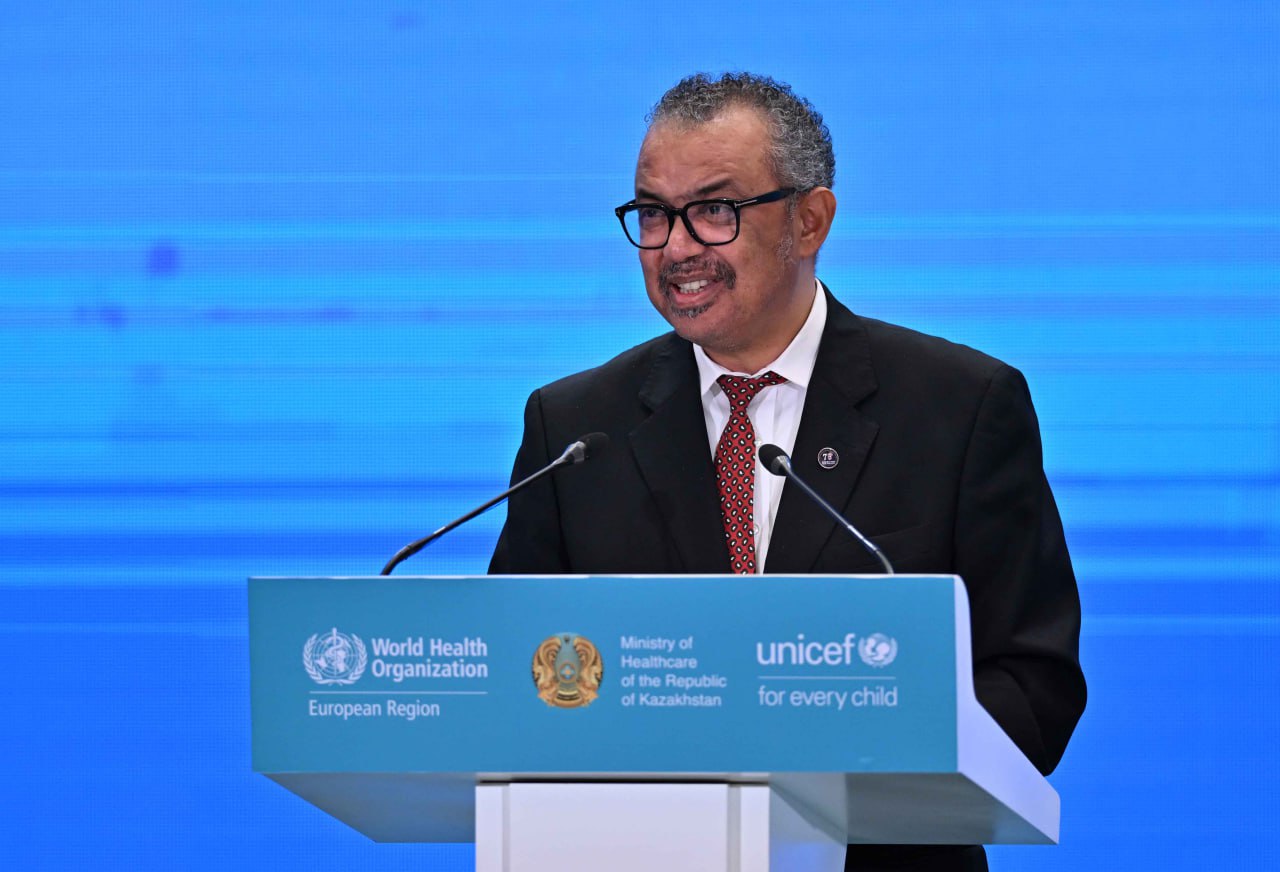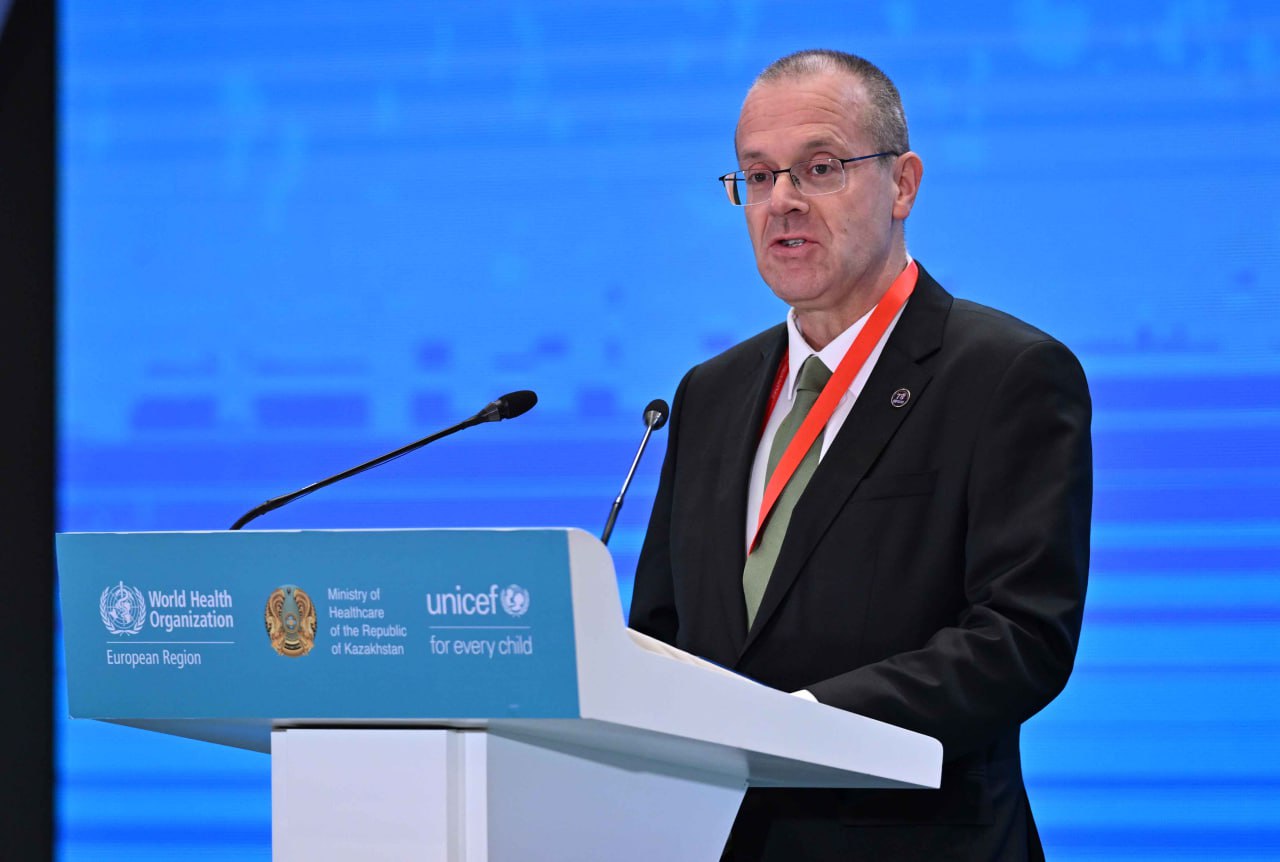ASTANA – Kazakh President Kassym-Jomart Tokayev, Director-General of the World Health Organization (WHO) Tedros Adhanom Ghebreyesus, and WHO Regional Director for Europe Hans Kluge delivered remarks at the opening of a landmark event in the global health calendar – an international conference on primary health care policy and practice in Astana on Oct. 23.

President Kassym-Jomart Tokayev. Photo credit: Akorda.
The event is dedicated to the 45th anniversary of the Alma-Ata Declaration and the fifth anniversary of the Astana Declaration on Primary Health Care.
In his opening remarks, Tokayev said that the historical Alma-Ata Declaration provided basis for a “socially just primary health model and has inspired many countries to improve people’s health by recognizing it as a fundamental human right.”
“It played a pivotal role in reducing maternal and infant mortality rates, as well as increasing life expectancy. Experts estimate that an effective primary health care system could potentially save 60 million lives and increase life expectancy by three years and seven months by 2030,” said the head of state.

The opening of the global conference on primary health care policy and practice. Photo credit: Akorda.
The President stressed the role of the primary health care system in preventing and identifying the spread of infectious diseases worldwide.
“As the COVID-19 pandemic has reminded us, primary health care also plays a critical role in the early identification of pandemics and in responding to unforeseen challenges. Primary healthcare organizations have shown resilience and an ability to adapt quickly. Our health care systems must remain alert. I take this opportunity to thank all medical workers and appreciate the contribution to humanity’s fight against COVID-19,” he said.
The primary health care in Kazakhstan, according to the President, is provided by nearly 6,000 organizations and 30,000 specialists.

WHO Director-General Tedros Adhanom Ghebreyesus. Photo credit: Akorda.
“The entire child population of the country is covered by preventive medical examinations. There are youth health centers in almost every major settlement. Every year, nearly three million adults undergo screenings and professional examinations. Since 2018, the number of primary care village clinics has grown threefold,” said Tokayev.
Digital technologies, such as telemedicine and remote monitoring, are also introduced in primary health care development. “Digital technologies open up more possibilities for increased primary health care accessibility,” he said.
Tokayev proposed to create a coalition of countries on primary health care with the main task “to promote the principles of integration and healthcare, as well as to elaborate recommendations for the development of primary health care.”
In his speech, the WHO Director-General underlined that Kazakhstan is the “birthplace of primary health care with a special significance at a professional level.”
“Since its independence, Kazakhstan has made significant progress in improving the health and well-being of its population. This includes expanding access to medicine, developing health and care workforce, addressing critical infrastructure and socio-economic determinants of health,” said Tedros Adhanom Ghebreyesus.

WHO Regional Director for Europe Hans Kluge. Photo credit: Akorda.
According to Ghebreyesus, the life expectancy rate has increased by more than 10 years for the last two decades and maternal mortality has declined fourfold in the same period meeting the global goals.
Last month, the United Nations (UN) General Assembly approved the Political Declaration on Universal Health Coverage.
The declaration, as noted by Ghebreyesus, “affirms that primary health care is the cornerstone of universal health coverage and the most inclusive, effective, and efficient path to it.”
In turn, Kluge noted that “at its heart, primary health care is about the people, the doctors, the nurses, the service, who remain with you throughout your life through complex illnesses in good times and bad times.”
He also commended Kazakhstan’s efforts in “the leadership to champion health and well-being at the center of the social agenda both domestically, regionally in Central Asia, and globally.”
Kluge added that “this is the first time when the heads of Central Asian states paved the roadmap of health.”
Over 80 delegations from WHO member states are taking part in the event, including ministers of health, scientists, academic and technical experts from international and nongovernmental organizations involved in shaping primary health care services.
Participants plan to shift focus from concepts to action and identify policies and practices to future-proof primary health care transformation for greater resilience in the face of emergencies and better health and well-being.
The global conference is a side event of the 73rd session of the WHO Regional Committee for Europe on Oct. 24-26, which will gather health ministers and high-level delegates from the 53 member states of the WHO European Region to reflect on the progress in delivering the European Program of Work (EPW) 2020–2025. EPW focuses on tackling growing health inequalities in Europe.
This year, WHO is marking not only 45 years since the signing of the Alma-Ata Declaration on primary health care, but the 75th anniversary of the organization.

